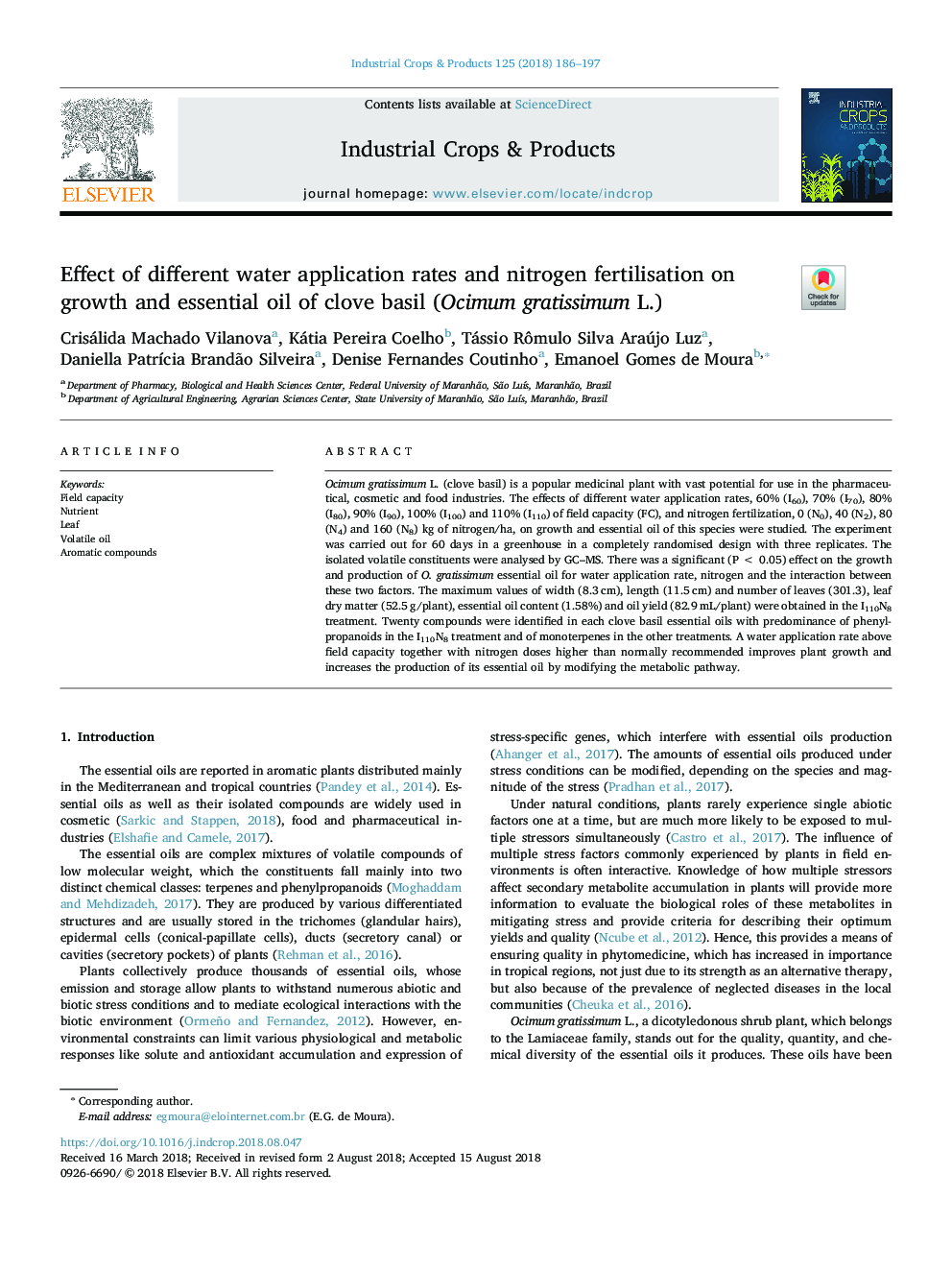| Article ID | Journal | Published Year | Pages | File Type |
|---|---|---|---|---|
| 8966055 | Industrial Crops and Products | 2018 | 12 Pages |
Abstract
Ocimum gratissimum L. (clove basil) is a popular medicinal plant with vast potential for use in the pharmaceutical, cosmetic and food industries. The effects of different water application rates, 60% (I60), 70% (I70), 80% (I80), 90% (I90), 100% (I100) and 110% (I110) of field capacity (FC), and nitrogen fertilization, 0 (N0), 40 (N2), 80 (N4) and 160 (N8) kg of nitrogen/ha, on growth and essential oil of this species were studied. The experiment was carried out for 60 days in a greenhouse in a completely randomised design with three replicates. The isolated volatile constituents were analysed by GC-MS. There was a significant (Pâ<â0.05) effect on the growth and production of O. gratissimum essential oil for water application rate, nitrogen and the interaction between these two factors. The maximum values of width (8.3âcm), length (11.5âcm) and number of leaves (301.3), leaf dry matter (52.5âg/plant), essential oil content (1.58%) and oil yield (82.9âmL/plant) were obtained in the I110N8 treatment. Twenty compounds were identified in each clove basil essential oils with predominance of phenylpropanoids in the I110N8 treatment and of monoterpenes in the other treatments. A water application rate above field capacity together with nitrogen doses higher than normally recommended improves plant growth and increases the production of its essential oil by modifying the metabolic pathway.
Related Topics
Life Sciences
Agricultural and Biological Sciences
Agronomy and Crop Science
Authors
Crisálida Machado Vilanova, Kátia Pereira Coelho, Tássio Rômulo Silva Araújo Luz, Daniella PatrÃcia Brandão Silveira, Denise Fernandes Coutinho, Emanoel Gomes de Moura,
